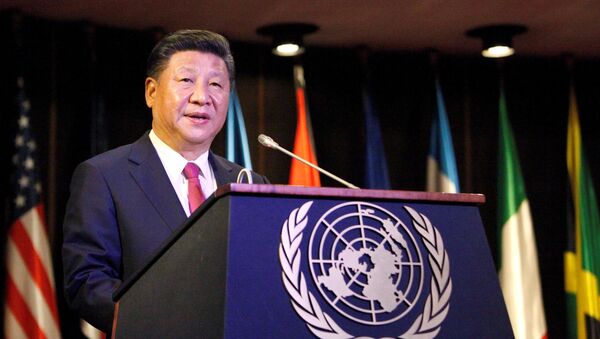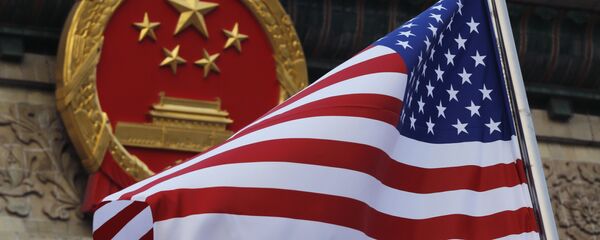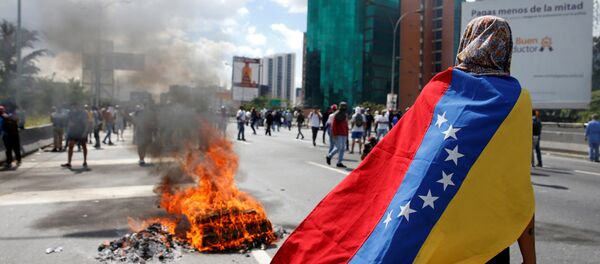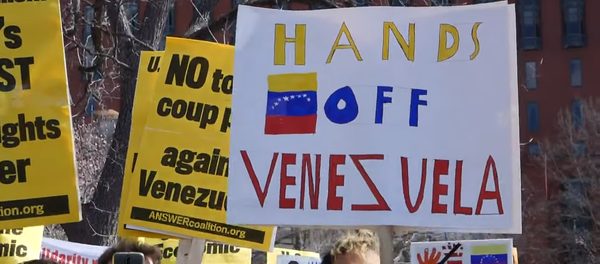Donald Trump's decision to cut funding to three Latin American states, namely El Salvador, Guatemala, and Honduras, and his threat to close the US-Mexican border, may prompt China to jump in and fill the gap, suggested Fan Hesheng, the head of the Center for Latin American Studies at Anhui University.
"Relations between China, the US and Latin America are really changing", Fan told Sputnik China. "However, if the United States reduces its presence in Latin American, this space will not necessarily be occupied by China, although the room for China's activities in Latin America is certainly increasing".
According to the scholar, Beijing could help South America solve burning social and economic problems in four ways.
First, Chinese investments help Latin American countries effectively cope with lack of funds, he highlighted.
"Chinese investments are very highly valued even by large countries like Brazil and Argentina", Fan said. "We know that developing countries have relatively low purchasing power and their economy does not largely depend on consumption. Their economic development is triggered by the inflow of investments. Therefore, Latin American countries seek Chinese investment, primarily through the Belt and Road Initiative (BRI)".
He explained that the European and American markets are "relatively sluggish" with little demand for commodities from Latin America. In contrast, China's growing market has huge demand for their products.
According to some estimates, China's economic growth has a direct impact on Latin America's economic development, the scholar argues, adding that the growth of the Chinese economy by 1 per cent fuels the growth of the Latin American economies by 0.5 per cent.
Third, China's presence on the continent contributes to the Latin American integration, he said, referring to the China-CELAC forum that includes China and the 33 member states of the region.
The forum of China and Community of Latin American and Caribbean States (CELAC) was established in July 2014 aiming to promote "the development of the comprehensive cooperative partnership based on equality, mutual benefit and common development", the organisation's official site says.
"This forum will facilitate integration processes", Fan believes. "China's presence in Latin America, especially the emergence of the Belt and Road Initiative, can enhance integration in [the region]".
On 20 March, Chinese Vice Premier Hu Chunhua called for expanding areas of the South-South cooperation at the Second High-level UN Conference on South-South Cooperation. Hu was invited to visit Argentina, Uruguay and the Dominican Republic from 18 to 27 March.
Trump's 'Isolationism' is Temporary
Deputy Director of the Institute of Asian and African Countries of Moscow State University Andrei Karneev echoed Fan by saying that given the growing elements of isolationism in US policy, additional opportunities are being created for China in the region, traditionally seen as the US' "backyard".
At the same both scholars said that Trump's isolationist approach to South American states is a temporary one citing Washington's interference in Venezuela's affairs.
"The fact that the United States is not ready for a 'strategic drawdown' in Latin America can be seen from the events in Venezuela", Fan opined. "Why does the United States support [self-proclaimed interim president Juan] Guaido? If the United States had already abandoned the idea of strategic expansion, this would be unnecessary. Therefore, I believe that the current US policy is temporary".
Referring to the US president's threats to close the American-Mexican border amid the ongoing migrant crisis, the Chinese scholar drew attention to the fact that Trump's "isolationism" is opposed not only by Democratic lawmakers but also their Republican counterparts.
"The United States and Mexico have close trade relations, and this also applies to US trade from Latin America in general", Fan stressed.
For his part, Karneev presumed that Trump does not have a comprehensive Latin American strategy judging from the US administration's flip-flops and tough ultimatums to the US' southern neighbours.
The views and opinions expressed by the speakers do not necessarily reflect those of Sputnik.





